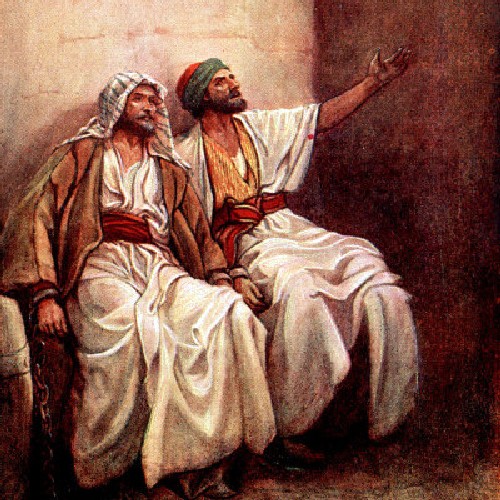Names of the Book
| English: | Philippians |
| Greek: | Φιλιππήσιος |
| Transliterated: | Philippēsios |
| Other names: | Paul's epistle to the Philippians |
 Who
Who
| Wrote the book: | Paul |
| Are the key people: | Paul, Timothy, Epaphroditus, Euodia, and Syntyche |
| Is it written to: | Believers in Philippi |
 What
What
| Joy in suffering for the cause of Messiah (Philippians 1:1-30) |
| Joy in serving the body of Messiah (Philippians 2:1-30) |
| Joy in believing the promises of Messiah (Philippians 3:1-4:1) |
| Joy in giving to the body of Messiah (Philippians 4:2-23) |
 When
When
| Was it written: | c 61 CE |
| Did the events occur: | c 61 CE |
| Was it canonized: | c 70-170 CE |
| (see the Timeline of the First Century) | |
 Where
Where
| Was it written: | Rome (while Paul was in prison) |
| Did the events occur: | Philippi |
 Why
Why
| Philippians was written to inform us that: |
| Messiah modeled humility for us. |
| Messiah modeled self-sacrifice for us. |
| Believers should live in unity. |
| Spiritual maturity comes by living the humility and self-sacrifice Messiah modeled for us. |
| Believers can have profound joy living in unity and in a spiritually mature fashion. |
 Introduction
Introduction
The "book" of Philippians is Paul's letter to the believers in the city of Philippi. The letter overflows with joy and thanksgiving for a gift that they had sent to Paul and for the recovery of Epaphroditus, the courier who had delivered it and fallen ill "to the point of death". Paul encourages the believers to be content in whatever circumstances they find themselves whether they are rich or poor, in bondage or free. He expresses joy that Yeshua was being proclaimed as Messiah even though some are doing it "out of selfish ambition rather than from pure motives". Paul encourages the believers to remain unified and to be G-dly servants just as Messiah was. Paul concludes the letter with an exhortation to "rejoice in the Lord always" and with the sage wisdom that "I can do all things through Him who strengthens me."
Scripture- Book Selection
